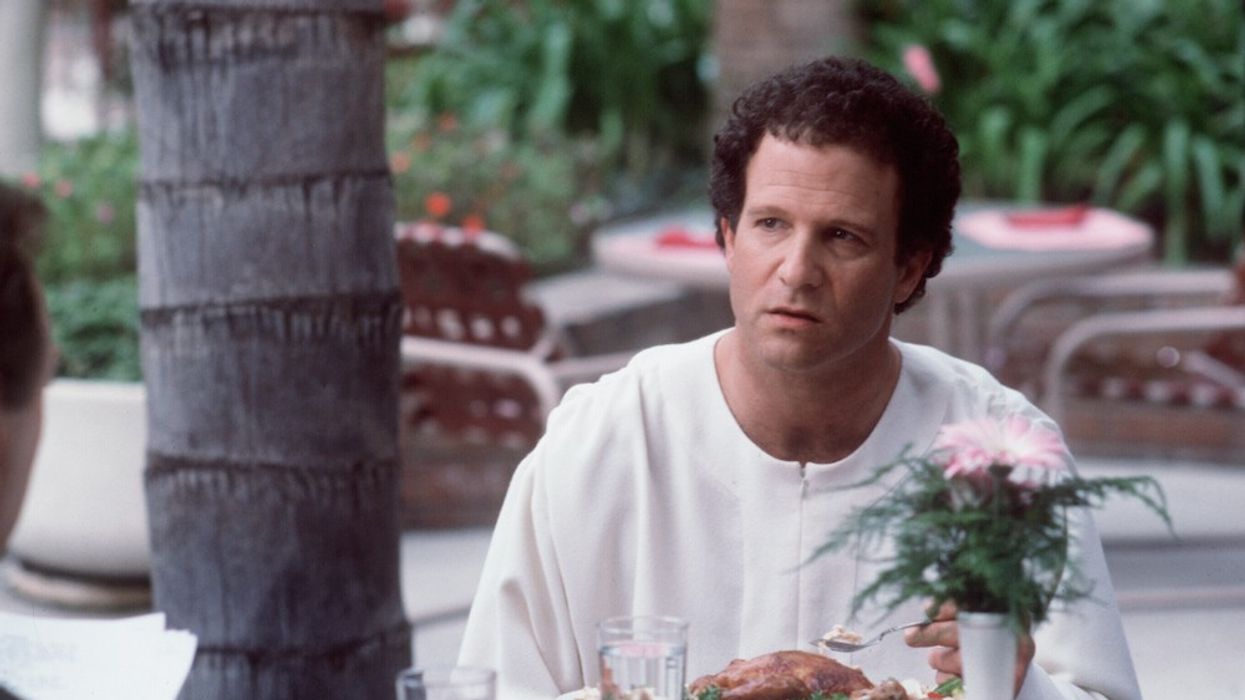Why is Ari Aster Such a Big Albert Brooks Fan?
Albert Brooks makes soulful comedies about the human condition. So why does horror maestro Ari Aster love his work so much?

I love people who love movies. And Ari Aster loves movies. He's constantly talking about them, consuming them, and letting them inspire him to write and direct more movies. But when he said he wrote nearly 4000 words about Albert Brooks in a Criterion op-ed...I was surprised.
From 10,000 feet, Ari Aster and Albert Brooks feel like they are on opposite ends of the filmmaking spectrum.
But are they?
Aster does not think so.
Let's look at a few of his words on the subject and on one of his favorite filmmakers.
Aster begins his piece this way, "When I think of Albert Brooks, the first image that invariably comes to mind is that of a worry-stricken man desperately impressing his anxieties upon a bemused, notably less nebbishy partner, presenting an elaborate case for the legitimacy of those anxieties, and ultimately feeling defeated and alone as his counterpart placates him, dismisses his distress, or rejects his outlook."
I mean, I don't think anyone has ever said it in a better way. That's what these movies embody. As I said in the opening, Brooks is always examining humanity and the human experience, in both life and death.
Aster's write-up has gems like this personal anecdote, "I remember my mother first showing me Defending Your Life when I was very young. It was my introduction to Brooks. 'This is the best movie ever made,' she said as she popped in the VHS tape, and to this day I see her point. (In truth, my mother—a better writer than I, and the most devoted of Brooks devotees—should be writing this.)"
But it also pulls back the layers of the Brooks filmography. Take a peek at this longer except: "Modern Romance is a comedy of anguish in which Brooks plays a pathologically jealous film editor named Robert, who calls it quits with his put-upon on-again, off-again girlfriend, Mary (Kathryn Harrold), before spiraling into despair and desperately entering back into a destructive pact of codependency with her. As a portrait of jealousy and obsession, it’s as striking and focused as Eyes Wide Shut (it should come as no surprise that Kubrick loved the film), and it also happens to serve, on the side, as one of the funniest depictions of below-the-line work in Hollywood ever made (featuring a deceptively benign, dopily ingenuous director of B shlock in the perfectly cast person of James L. Brooks, who would later direct his buddy Albert in his best film, Broadcast News). But in the end, this is a break-up comedy—perhaps the break-up comedy—and it’s the only movie I’ve made a tradition out of revisiting after the fresh collapse of a romantic relationship. It always makes me feel better/worse."
Brooks' work spans almost 30 years, and I hope we get more soon.
Coincidentally, the last movie Aster talks about is the first one I saw. I was in third grade and it was on the airplane, so I really didn't understand most of it, but I did laugh at most of the jokes in Mother. Even the ones that went way over my head.
Here's how Aster puts it, "Mother, a film very much about disappointment, stands as a warm gesture of acceptance. Its ending, which offers a sense of closure, feels somehow like a shedding of skin—less a selling out (an accusation that one could see a young Brooks casting on the film) than a settling down. Brooks’s work has grown and matured in a way that one might hope to mature in one’s own life."
The career of Albert Brooks feels very blue-collar. He makes smaller movies about people. They reflect the times in which they were made, exploring the frustrations of a guy who just wants to know how it all works.
I think that's what makes this stuff accessible to all of us and what makes him loved by the people who make things that don't even resemble his work all that much.
If you have not seen the movies, I encourage you to track them down. I implore you. And so does Aster.
Aster ends his piece this way, "How I envy the wretch who has not yet discovered Albert Brooks! The opportunity to now watch these five remarkable films on the Criterion Channel—each looking crisper than I’ve ever seen them and retaining all of their original bite—is one to be celebrated and then mourned when it’s over."
So, what does Brooks think of these accolades from one of the most brilliant young directors? He seems to be letting it go to his head.
Read the entire Ari Aster ope-ed on the Criterion website. A series of Albert Brooks’s films is playing on the Criterion Channel now through October 31, 2020. Check them out.
Love Albert Brooks too? Let us know in the comments.











